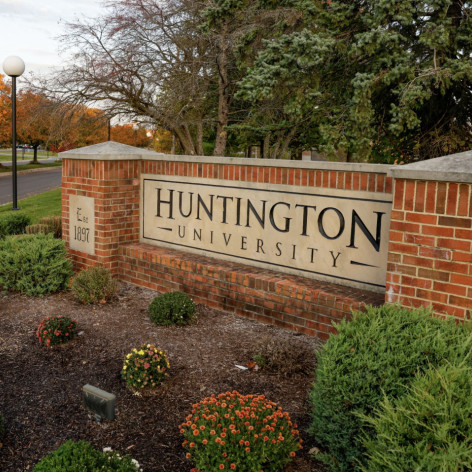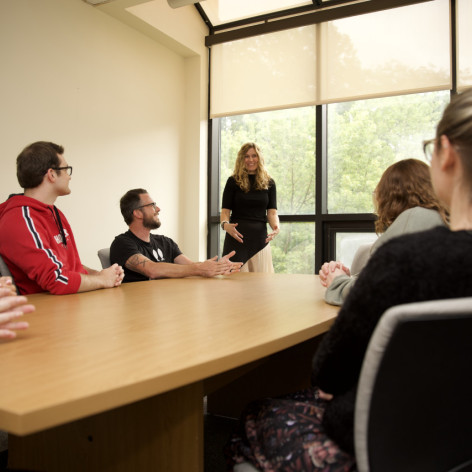Everglades trip teaches environmental appreciation
FOR RELEASE: Tuesday, February 3, 2009
Huntington, Ind.-Imagine snorkeling among barracudas, lobster, green parrot fish in coral reefs and canoeing near the Gulf of Mexico-and then imagine earning college credit for it. This is exactly the paradise Dr. Jeffrey Webb's "American Environmental History" class experienced during their week-long adventures in the Florida Everglades, while the rest of Huntington University was experiencing record cold temperatures. The class was designed to give students an in-depth look at major problems in American environmental history in the first week, and then in the week following, they packed up their gear and drove a bus down to the Florida Everglades where they set up camp in Biscayne National Park and began exploring the surrounding wildlife. They spent their days hiking, canoeing, snorkeling and keeping their daily journals. At night, they sat around the campfire and chatted, making new friends and playing guitar. Students enjoyed and captured pictures of the mangroves forests, rare birds, coral and alligators, and the "battlegrounds" of nature conservationalists and the corporations who wanted to build over the Everglades.
"It's amazing what beautiful things God has created on this earth for us to enjoy and how often we take those things for granted and end up disrespecting his glorious creations," said freshman Emily Swartz, a youth ministries major from Syracuse, Ind. "I can't imagine those beautiful structures being covered in tar."
This was the point Webb intended when he put together the class.
"We study the human impact on south Florida," he said, "...but you really don't get a sense of that until you're actually down there."
It began with the Puritans, Webb said, who believed that the wilderness was something devilish that had to be tamed. It wasn't until the 20th century when the transcendentalist movement began to push the United States into once again seeing nature as something beautiful, rather than something to be feared and pushed back from civilization.
"Essentially, they began to realize that you weren't going to lose your spirituality or become less spiritual by going into nature," explained Webb.
"What we find in environmental history," he explained further, "are these episodes that sort of teach us about the human nature...half the class is devoted to introducing creation care."
Students were introduced to the idea of studying Biblical passages on how Christians should take care of the environment. They were assigned an essay on the subject, and their daily journals continually dealt with this issue.
"We were playing with the idea that these little experiences we were having in Georgia and in south Florida could offer to us certain parables that contain wisdom, if we're willing to pay attention," Webb said.
For many of the students, the experience of snorkeling among the fish was among their most treasured memory of untainted wildlife.
"Getting to experience the beauty of the parks we visited... is something that a majority of people may not ever get to do," said sophomore Jacob Rose, an elementary education major from Butler, Ind.



